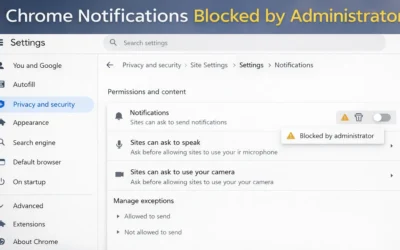Hybrid cloud isn’t just about flexibility — it’s one of the most effective strategies enterprises use to strengthen data security and ensure regulatory compliance. As cyber threats evolve and privacy laws tighten worldwide, hybrid cloud offers the perfect balance between control, scalability, and security. In this article, we’ll explore its key benefits, real-world applications, and how organizations can implement it securely.
What Is a Hybrid Cloud?
A hybrid cloud combines on-premises infrastructure (private cloud) with public cloud services. This dual setup allows organizations to store and process sensitive data locally while using the public cloud for less critical workloads. The result is agility without compromising control or compliance.
Why Security and Compliance Matter
From cybersecurity incidents to data privacy laws like GDPR, HIPAA, and PCI DSS, organizations face increasing legal and ethical obligations. Failing to safeguard data can result in massive financial penalties and reputational damage. Hybrid cloud provides a practical way to meet compliance mandates while maintaining flexibility and operational efficiency.
Top 7 Security Benefits of Hybrid Cloud
1. Segmented Data Control
Hybrid cloud allows organizations to isolate critical workloads on private infrastructure while leveraging the public cloud for general services. This segmentation minimizes risk exposure and strengthens governance over sensitive data.

2. Regulatory Data Residency Compliance
Data residency laws like GDPR and Microsoft Trust Center require that personal data be stored within specific jurisdictions. Hybrid cloud lets businesses meet these mandates by hosting regulated data on local servers while using global cloud platforms for scalability.

3. On-Prem Backup and Business Continuity
Hybrid cloud architecture ensures that critical systems and data backups exist both on-premises and in the cloud. This redundancy supports ISO 27001 compliance and guarantees business continuity during service disruptions or cloud outages.

4. Role-Based Access Control (RBAC)
With role-based access control, hybrid cloud platforms allow administrators to assign data access based on job roles, reducing unauthorized entry points. RBAC aligns with NIST Cybersecurity Framework and SOC 2 standards.

5. Network Isolation and Custom Firewalls
Private cloud environments in hybrid setups enable deep network segmentation and advanced firewall configurations. Administrators can implement intrusion detection and prevention systems (IDS/IPS) to secure data flow between private and public systems.

6. Hybrid Identity & Authentication
By integrating on-prem Active Directory with cloud IAM services like Okta, hybrid cloud supports single sign-on (SSO) and multi-factor authentication (MFA). This unified identity management approach aligns with Zero Trust security principles.

7. Encryption Flexibility (Client-Side & In-Transit)
Hybrid models allow full encryption management—organizations can own their encryption keys (client-side) while enforcing TLS/SSL encryption for data in transit. This dual-layer encryption helps maintain compliance with HIPAA, GDPR, and PCI-DSS.

Compliance Frameworks Supported by Hybrid Cloud
- GDPR: Data localization and consent-based security
- HIPAA: Data confidentiality and healthcare protection
- PCI-DSS: Secure cardholder data environments
- SOC 2: Logical access and change management
- ISO 27001: Information security management framework
Real-World Use Cases of Hybrid Cloud Security
- Healthcare: Hospitals use hybrid cloud to keep patient health records on local servers while running analytics and AI diagnostics in the public cloud—maintaining HIPAA compliance.
- Finance: Banks store transaction data on-prem while using cloud-based risk engines for fraud detection, ensuring PCI-DSS compliance.
- Government: Agencies host classified data internally but deploy public-facing applications securely via Azure Government Cloud.
Challenges & Solutions in Hybrid Cloud Security
- Challenge – Misconfigurations: Common in multi-vendor setups; Solution: Use automation tools to audit configurations and enforce security policies.
- Challenge – Limited Visibility: Hybrid complexity can hide threats; Solution: Centralize monitoring with SIEM tools like Splunk or IBM QRadar.
- Challenge – Vendor Lock-in: Switching between providers can be costly; Solution: Use open APIs and container-based architecture for flexibility.
Future Trends in Hybrid Cloud Compliance
- AI-Driven Compliance: Machine learning models will analyze logs for policy violations automatically.
- Quantum-Resistant Encryption: Organizations will adopt new algorithms to protect data from next-gen computing threats.
- Sovereign Cloud Models: Regionalized clouds designed to meet data sovereignty laws.
Expert Insight
“Hybrid cloud has matured from an IT trend to a compliance enabler. Enterprises that balance flexibility with governance will not only protect their data but also enhance resilience against evolving threats.” — MagnetClicks Research Team
Hybrid Cloud Security Best Practices
- Implement centralized monitoring and continuous log collection across hybrid environments.
- Apply Zero Trust principles to users, workloads, and endpoints.
- Automate patching and compliance checks using integrated cloud management tools.
- Train employees on hybrid-specific cybersecurity threats and response procedures.
Hybrid cloud security is more than a technical upgrade — it’s a strategic business decision. When executed properly, it strengthens compliance, reduces risk exposure, and delivers unmatched scalability for the modern enterprise.
➡️ Related Reading: What is Zero Trust Security? [Complete Guide]
Frequently Asked Questions
What is hybrid cloud security?
Hybrid cloud security refers to the combined practices and tools used to protect data, applications, and identities across on-prem and cloud environments.
How does hybrid cloud improve data compliance?
It allows organizations to meet compliance standards like GDPR, HIPAA, and SOC 2 through data residency, encryption, and policy-based controls.
What are the main benefits of hybrid cloud?
Key benefits include segmented control, redundancy, encryption flexibility, and improved scalability while maintaining compliance.
How does hybrid cloud differ from multi-cloud?
Hybrid combines on-prem and cloud environments; multi-cloud uses multiple public cloud vendors. Hybrid focuses more on control and compliance.
Can hybrid cloud help with disaster recovery?
Yes, hybrid models store backups locally and in the cloud, ensuring data recovery and continuity during service outages.







